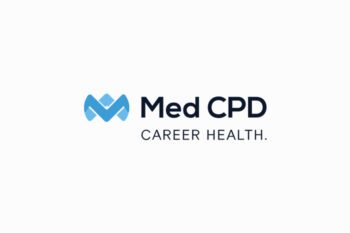Medical Conferences the new Professional Development hub?
March 28, 2023
The History of the Medical Conference
The first local medical conference occurred in New York in 1846, sparking national interest in the mission to bring together professionals with an interest in bettering medicine for all. In the twenty years leading up to the first inaugural National Medical Convention, held in New York in 1846, several endeavours were made to convene representatives from state medical societies and institutions to enhance medical education. Although these early gatherings failed to assemble delegates at a nationwide level, they adopted resolutions calling for elevated standards of professional training and advocating for national reform. These resolutions were disseminated through circulars to medical societies and institutions, generating a nationwide interest that eventually led to the triumph of the first national medical convention.
As countries far and wide began adopting the ideals of national conferences, it wasn’t until 1867 that an international conference was formed to bring physicians, surgeons, researchers and diplomats to a central location for the growth of the sector. From 1867 until 1913, a series of international scientific conferences on medicine known as the International Medical Congress were held periodically in Paris, France. The first congress was a great success and received the support of the French Government. Victor Duruy, Minister of Public Instruction, officially attended the congress, and several honorary members were selected from foreign diplomatic bodies and learned societies – immediately giving conferences the respect of the nation, quickly known as the highest regarded learning in the medical profession.
How have they changed
Medical conferences have been around for a long time using a very similar format – usually thousands of healthcare professionals from all around the world gather once a year to attend lectures/sessions, hands-on training, poster presentations and different kinds of workshops. This is a crucial meeting place of the like-minded; meeting to discuss advancements in technology, the latest research, theories of medicine and to pass on wisdom from the industry’s greatest minds. In this regard, conferences will never go out of style – they provide a very unique deep dive into the area of interest that we would otherwise not see on the scale provided. However, we are well into 21st century and the following has changed:
– Healthcare professionals have never been busier (according to research, 76% of healthcare professionals say that managing a workload when away from home is becoming a major challenge)
– The amount of new knowledge and published studies increases exponentially, while the day still lasts 24 hours
– Everyone has a mobile phone in their pocket and uses desktop/tablet/mobile platforms more than 8 hours per day
– Technological progress made streaming of videos/events much more accessible
– More than 51% of healthcare professionals are digital natives
– Healthcare professionals expect online access to content even if they attend physical conferences (70% of them, according to pre-COVID19 research)
The message is clear: The future is digital. Or at least in part.
With the advent of the COVID pandemic in early 2020, conferences were forced to adapt in a ‘sink or swim’ ultimatum. Out of necessity, conference organisers had to rethink their approach to conference execution. Some conferences were cancelled; however many were restructured so that they were entirely virtual. Presentations were made using Zoom technology. Event sponsors set up virtual “booths” where attendees could obtain information about a particular company or get answers to questions they might have. “Online happy hours” were scheduled so that conference attendees could socialise in much the same way they would have if they were attending in-person.
On the positive side – they promoted greater access. The combination of no need to travel, more efficient use of time, and reduced cost enabled a broader array of individuals to attend. Furthermore, the educational experience, at least in theory, was comparable to an in-person conference. There were, however, a number of considerable downsides – the most prominent of which was the inability to network and connect in-person with others in the field.
Moving from in-person to virtual to something in-between
The question becomes – now, as we move back to a place where face-to-face conferences are possible from a public health perspective, how should these conferences be structured with respect to in-person vs virtual engagement? This is an important question as the recent shift from in-person conferences to virtual ones has impacted the expectations of conference attendees. While going back to a face-to-face format is preferable for some, others have become accustomed to the convenience and the flexibility of a virtual format. Ultimately, the most successful conferences moving forward will be those that can somehow integrate the benefits of each format…and to that end, many seem to be moving towards a hybrid approach which integrates both in-person and virtual elements.
Upcoming Conferences in 2023
MEDINFO 2023
19th World Congress on Medical and Health Informatics (MEDINFO 2023) is organised by International Medical Informatics Association (IMIA), Australasian Institute of Digital Health (AIDH) and will be held from Jul 08 – 12, 2023 at the International Convention Centre Sydney, Sydney, New South Wales, Australia. Learn first-hand from digital health and informatic experts about the future of healthcare in a digital society. These experts from around the world will share their insights, knowledge, and experiences, providing valuable learning opportunities. There will be a variety of sessions and workshops including covering international policy forums, leadership and CXIO streams and workshops, and hands on technical and standards workshops as well as a wide range of presentation topics: MedInfo 2023 will cover a wide range of topics related to digital health, such as artificial intelligence, telemedicine, digital health innovations, and patient-centred care. This variety ensures that there is something for everyone, no matter their specific interests.
The event theme – THE FUTURE IS ACCESSIBLE – aims to inspire to lead the conversation and implement actions where we collectively are building a health sector that is accessible, where data is not locked in silos and where both clinicians and consumers can work together in true partnership towards healthier lives, digitally enabled.
RMA23 – Rural Medicine Australia 2023 Conference
Rural Medicine Australia (RMA) is the peak national event for rural and remote doctors of Australia. Hosted by the Australian College of Rural and Remote Medicine (ACRRM) and the Rural Doctors Association of Australia (RDAA), RMA attracts a diverse and collaborative community of junior doctors, students, educators, academics, and medical practitioners who are passionate about generalist medicine in rural and remote communities. With a packed program full of innovative and informative presentations, interactive workshops and social events, along with a heap of exhibitors, you’re not going to want to miss out on the biggest rural networking event of the year! RMA23 will be held at Hotel Grand Chancellor Hobart from Thursday 19 October to Saturday 21 October 2023, with pre-conference courses and our popular Welcome Reception on Wednesday 18 October 2023.












